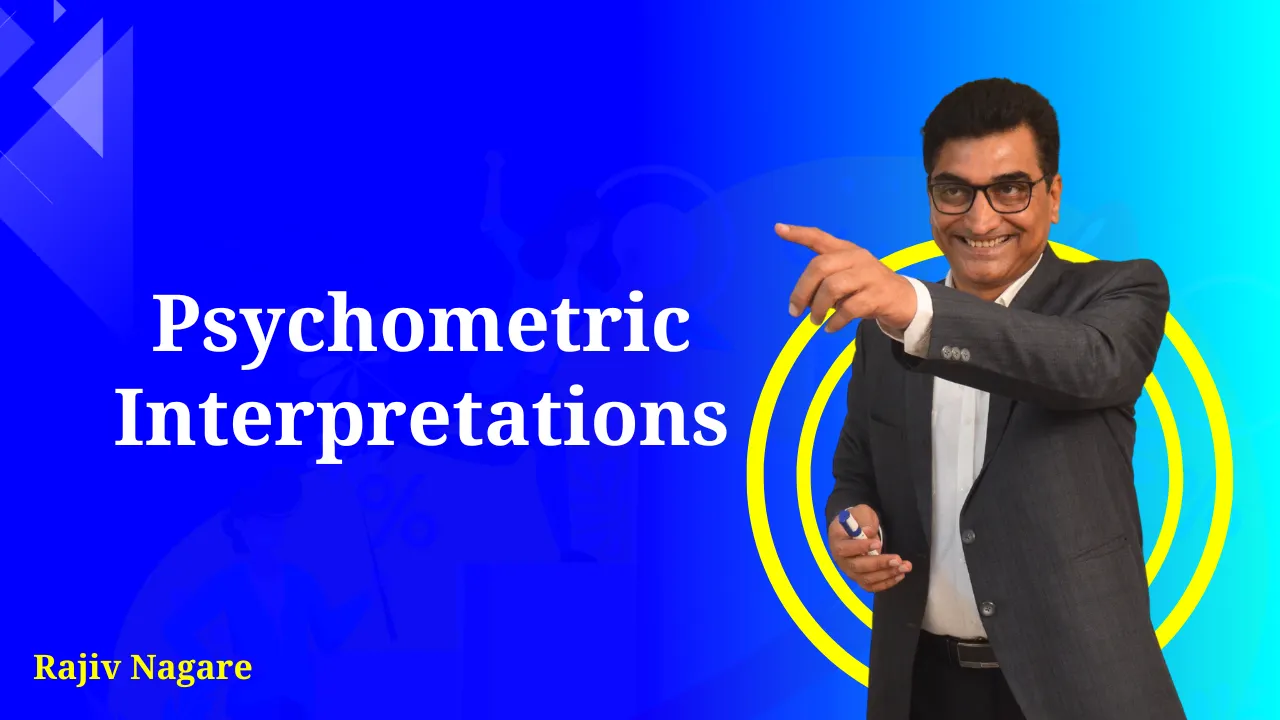How Can Psychometric Assessments Improve Self-Awareness?
In today’s fast-paced world, understanding oneself is key to personal and professional success. Self-awareness serves as the foundation for better decision-making, improved relationships, and long-term growth. But how can one truly understand their own traits, preferences, and capabilities? Enter psychometric assessments—a scientifically proven method to enhance self-awareness by evaluating psychological attributes like personality, emotional intelligence, and skills.

Psychometric assessments have gained immense popularity among students, professionals, and organizations for their ability to provide actionable insights. This blog will explore how psychometric assessments improve self-awareness and help individuals unlock their full potential.
What Are Psychometric Assessments?
Psychometric assessments are standardized tools designed to measure various psychological traits such as personality, interests, emotional intelligence, and cognitive abilities. These assessments use objective testing methods to ensure reliability and accuracy, making them valuable for career planning, personal development, and even recruitment processes.
Key Features of Psychometric Assessments:
- Standardized Testing: These tests follow strict guidelines, ensuring fair and consistent evaluation.
- Quantifiable Results: Provide measurable data to analyze personality traits, skills, and interests.
- Application in Multiple Domains: Widely used in education, career counseling, recruitment, and team-building exercises.
In India, psychometric assessments have become increasingly relevant as students and young professionals strive to make informed career decisions in a competitive job market.
Why Is Self-Awareness Important?
Self-awareness is the ability to understand and evaluate your own thoughts, emotions, strengths, and weaknesses. It enables you to:
- Make informed decisions about your personal and professional life.
- Build meaningful relationships by understanding how you interact with others.
- Identify and address areas for improvement, fostering personal growth.
However, achieving self-awareness is not always straightforward. Often, individuals lack the tools or frameworks necessary to objectively evaluate themselves. This is where psychometric assessments come in.
How Psychometric Assessments Improve Self-Awareness
Psychometric assessments provide a structured approach to self-discovery by analyzing key psychological traits. Here’s how they contribute to self-awareness:
1. Unveiling Personality Traits
Psychometric tools, such as the Myers-Briggs Type Indicator (MBTI) or similar models, analyze personality dimensions like introversion vs. extroversion and thinking vs. feeling. Understanding these traits helps individuals align their personal and professional lives with their natural preferences.
Example: An extroverted individual may thrive in roles requiring social interaction, such as sales or marketing, while an introverted person might excel in analytical or technical fields.
2. Understanding Emotional Intelligence (EQ)
Emotional intelligence encompasses self-regulation, empathy, motivation, and relationship management. Assessments measuring EQ help individuals recognize their emotional strengths and areas needing improvement.
Benefits of High EQ:
- Better stress management.
- Improved interpersonal relationships.
- Enhanced leadership capabilities.
Example: A high EQ enables managers to understand team dynamics and resolve conflicts effectively.
3. Identifying Strengths and Weaknesses
Psychometric tests highlight core strengths and areas for development. By mapping these to specific tasks or roles, individuals gain clarity on how to maximize their potential.
Example: A person strong in logical reasoning might succeed in data-driven roles, while someone with high verbal abilities could excel in communication-based careers.
4. Recognizing Career Interests
Psychometric assessments evaluate career interests through frameworks like the Holland Code, which categorizes interests into six themes: Social, Artistic, Conventional, Enterprising, Realistic, and Investigative.
How It Helps:
- Identifies career paths aligned with individual passions.
- Reduces the trial-and-error approach in career planning.
Example: Someone with artistic interests might explore careers in design, writing, or performing arts, while an investigative individual might prefer roles in research or analytics.
5. Discovering Learning Styles
Understanding how you learn best—whether visually, audibly, or kinesthetically—can significantly enhance academic and professional performance.
Benefits:
- Improved knowledge retention.
- More effective upskilling and training strategies.
Example: A visual learner might benefit from diagrams and videos, while an auditory learner could prefer lectures and discussions.
Real-Life Applications of Psychometric Assessments
For Students
- Helps choose the right academic stream or higher education path.
- Aligns personal interests and skills with career goals.
Example: A student with strong spatial abilities might pursue architecture or design.
For Professionals
- Breaks career stagnation by identifying suitable transitions.
- Enhances leadership and team-building skills.
Example: A mid-level manager may use EQ assessments to improve their ability to handle team dynamics and conflicts.
For Organizations
- Facilitates recruitment by matching candidates to roles based on their personality and abilities.
- Boosts team productivity through better understanding of individual strengths.
Example: Using psychometric tools to build diverse, high-performing teams.
The CareerZilla® SWOT Model and Self-Awareness
The CareerZilla® SWOT Model integrates psychometric assessments with strategic analysis to enhance self-awareness.
How It Works:
- Strengths: Identifies core skills and personality traits.
- Weaknesses: Highlights areas needing improvement.
- Opportunities: Aligns strengths with market demands.
- Threats: Identifies potential challenges like automation or skill gaps.
Example: A person strong in leadership but weak in technical skills may be guided to pursue management roles with technical certifications.
Steps to Use Psychometric Assessments for Self-Awareness
- Take the Right Test: Choose assessments tailored to your needs, such as personality, EQ, or skills evaluations.
- Seek Expert Guidance: Consult certified professionals to interpret the results.
- Implement Insights: Use findings to plan your career, improve relationships, and develop new skills.
- Regular Updates: Reassess periodically to track growth and adapt to changes.
Debunking Myths About Psychometric Assessments
1. Myth: Results are unreliable.
- Reality: Certified tests provide accurate, standardized insights.
Myth: These tests are only for job seekers.
- Reality: They’re valuable for anyone seeking personal or professional growth.
Psychometric assessments are a powerful tool for improving self-awareness. By revealing insights into personality traits, emotional intelligence, career interests, and learning styles, these tests enable individuals to make informed decisions and unlock their true potential. Whether you’re a student planning your future, a professional seeking career growth, or an organization aiming for better team dynamics, psychometric assessments offer invaluable benefits.















